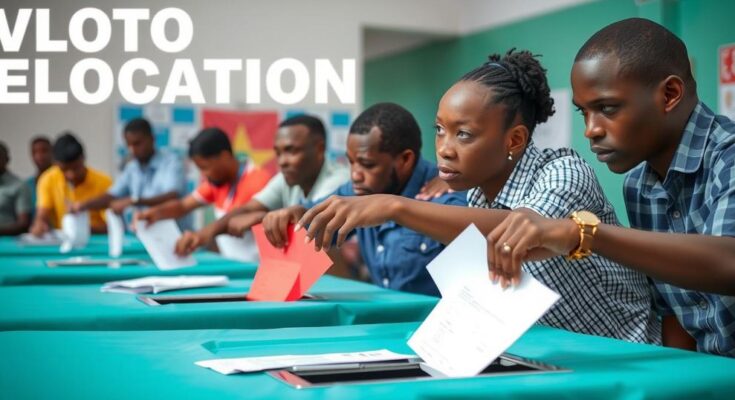Comoros held elections amid opposition boycotts alleging a lack of transparency. Key figure Nour El-Fath Azali is contesting while several polling stations experienced delays. Observers noted improvised polling setups raising concerns of voter privacy. Despite past violence following elections, President Azali expressed optimism regarding the process. Opposition candidates participated to avoid past mistakes, with expectations of CRC dominance.
The Indian Ocean nation of Comoros held elections for lawmakers on a Sunday, marked by a notable boycott from various opposition factions citing a lack of transparency in the electoral process. Nour El-Fath Azali, the 39-year-old secretary general and son of President Azali Assoumani, was contesting for a seat near the capital, Moroni. Reports indicated several polling stations faced delays in opening due to a lack of voting materials, a situation compounded by observers noting improvised setups that compromised voter privacy. Prior to his appointment as secretary general, Nour served as a personal advisor to his father, further amplifying concerns about the concentration of power within the ruling party, Convention for the Renewal of the Comoros (CRC). The president himself expressed satisfaction with the peacefulness of the voting day, despite past election-related unrest, which included deadly protests and allegations of fraud. Opposition candidates participated in this election to avoid a repetition of the 2020 boycott that allowed the ruling party unfettered access to legislative power. As the CRC is anticipated to secure a considerable majority, the results remain critical for the country’s democratic governance.
Comoros, a small archipelago in the Indian Ocean, has a tumultuous political history, often characterized by coups and electoral controversies. In recent years, President Azali Assoumani has faced criticism for his governance methods, especially following his re-election amid accusations of rigging. The political landscape has been dominated by his party, the CRC, which has been accused of undermining opposition forces. The latest elections in 2024 have drawn significant attention as opposition groups work to maintain their presence in the legislature, despite calls for boycotts due to perceived unfair practices. This election’s outcomes will be crucial in determining whether a semblance of democracy can be upheld in the nation.
The elections in Comoros underscore ongoing tensions within the country’s political framework, particularly regarding transparency and fair representation. Despite the ruling CRC’s expected dominance, significant opposition participation indicates a desire for a more accountable governance structure, following the upheaval of previous electoral processes. The actions and reactions of both the government and opposition parties in this election will set important precedents for the future political climate in Comoros, especially in relation to public trust and electoral integrity.
Original Source: www.arabnews.com




